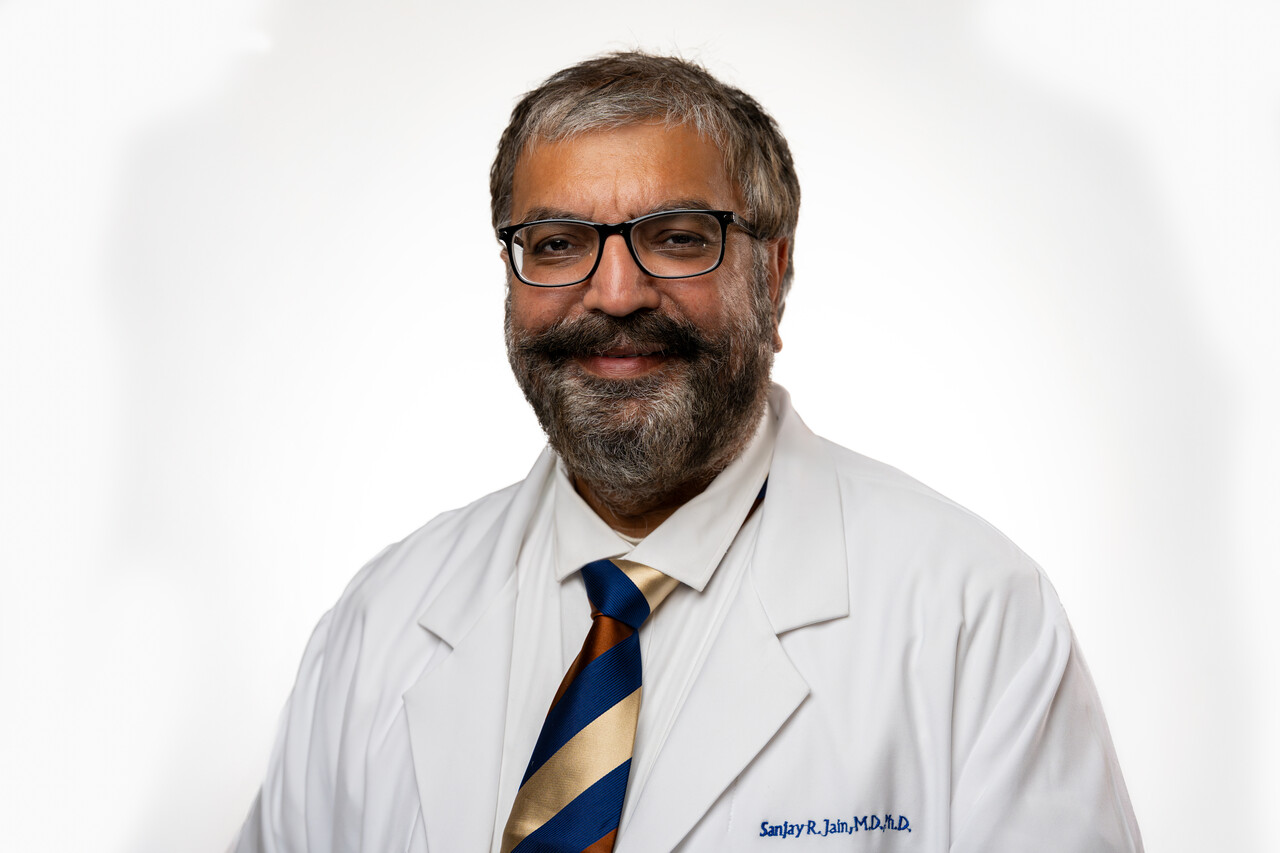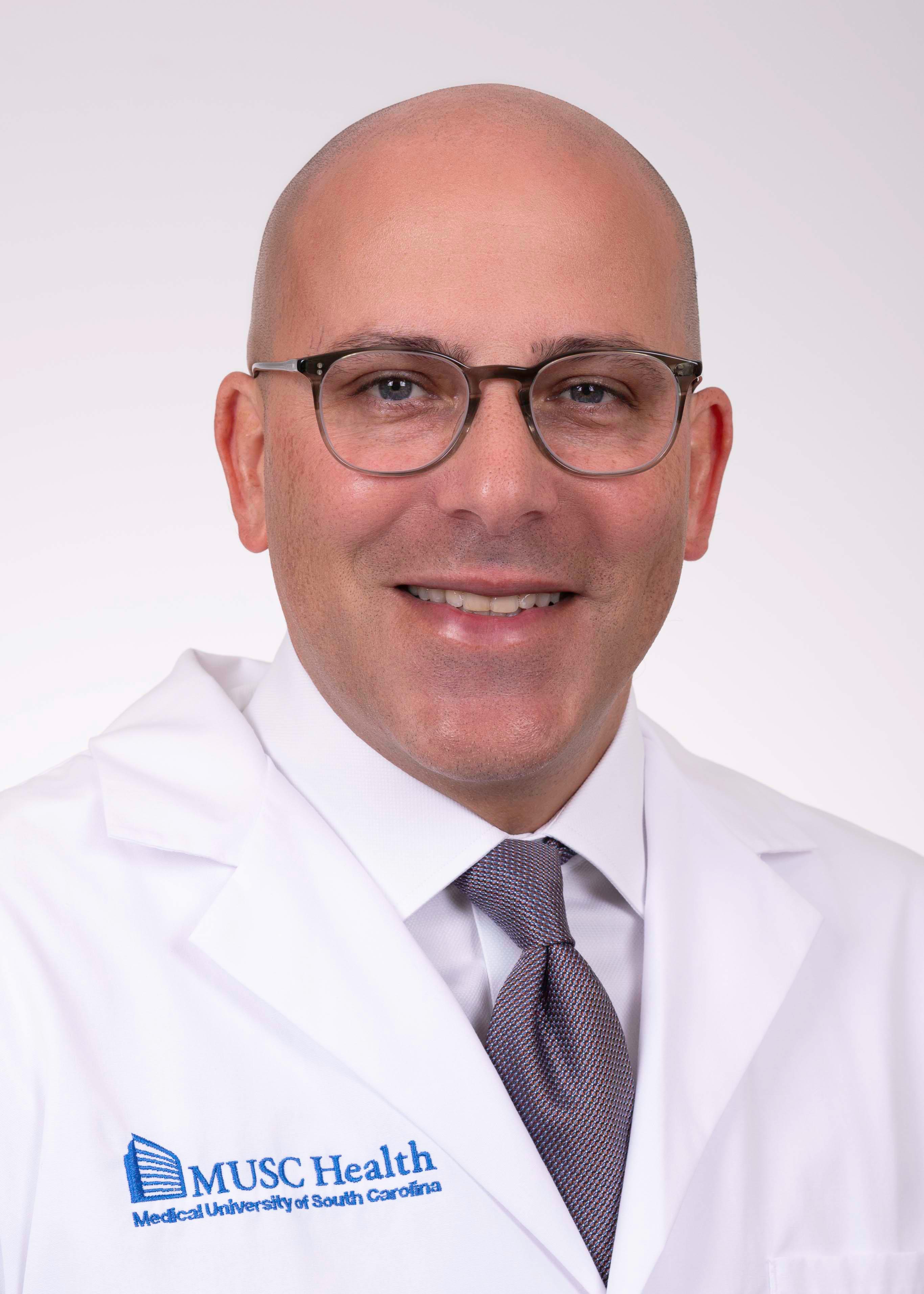
Sanjay Jain, MD, PhD
- Benign Hematology
- Biliary Cancer
- Gastrointestinal Cancer
- Head & Neck Cancer
- Lung Cancer
- Medical Oncology
- Melanoma & Skin Cancer
- Pancreatic Cancer
- Sarcoma Cancer
- Charleston, SC
- North Charleston, SC
Gallbladder cancer and cholangiocarcinoma, or bile duct cancer, are rare in the U.S. Because these are uncommon cancers, it’s important that you work with a cancer treatment team that has experience treating biliary cancer. The multidisciplinary team at MUSC Hollings Cancer Center, the state’s only NCI-designated cancer center, includes medical oncologists, surgical oncologists, radiation oncologists, psychologists, nurse navigators and more who are dedicated to providing you the best possible care.
We also offer a next-day access program for people with newly diagnosed, non-metastatic cholangiocarcinoma so that you can begin discussing a treatment plan with a surgeon right away.
Newly Diagnosed or Non-Metastatic
If you have newly diagnosed, non-metastatic bile duct or gallbladder cancer, schedule an appointment by calling:
Metastatic, Established or Second Opinions
If you have metastatic bile duct or gallbladder cancer, are an established patient, or want a second opinion, schedule an appointment by calling:

MUSC Hollings Cancer Center has been recognized as High Performing in Cancer Care in the 2025–2026 U.S. News & World Report rankings. This honor underscores our advanced expertise and dedication to providing patients with innovative treatments and personalized care.
Cholangiocarcinoma, or bile duct cancer, is cancer within the bile ducts that carry bile between the liver, where it is produced, the gallbladder, where it is stored, and the small intestine, where it is used to break down food.
You may see the terms intrahepatic, which refers to the bile ducts inside the liver, and extrahepatic, which refers to the bile ducts outside the liver. There are two types of extrahepatic bile duct cancers – perihilar, when the cancer forms where the ducts meet, and distal, when the cancer forms closer to the small intestine. Most bile duct cancers are extrahepatic.
Overall, about 8,000 people in the U.S. will be diagnosed with bile duct cancer each year.
Your gallbladder is a small organ beneath your liver. It’s a storage tank for bile, the substance that breaks down fat into fatty acids.
When cells in the gallbladder start to grow out of control, cancer begins. Cancer in the gallbladder is rare — about 5,000 people in the U.S. will be diagnosed with gallbladder cancer each year.
Gallbladder cancer and bile duct cancer often don’t show symptoms at first. Because the gallbladder is small and tucked behind the liver, doctors can’t really feel it when they conduct regular physical exams.
Signs of chronic inflammation, like being diagnosed with cholecystitis, may be the first clue that cancer is developing.
Symptoms of advanced disease can include:
The most common treatments for gallbladder cancer and cholangiocarcinoma are surgery and systemic therapy to include chemotherapy, immunotherapy, and/or targeted therapy.
There have been significant advances in systemic therapies. At Hollings, we conduct a molecular profile of your tumor to understand which treatments are most likely to be effective. Your doctor will work with a multidisciplinary team to review your case and develop a plan that takes into account the best therapies for you as well as the optimal order for you to receive those therapies.
When doctors look at images of the gallbladder and bile ducts, if it looks like all of the cancer could be removed, they’ll schedule a potentially curative surgery. Cancer surgeries for the gallbladder and bile ducts are complex procedures that require highly skilled surgical teams, like the team at Hollings.
If doctors recommend surgery to remove your gallbladder, know that you can live a perfectly normal life without your gallbladder. Whenever possible, our teams will use minimally invasive methods, like robotic surgery or laparoscopic surgery. Minimally invasive surgeries require smaller incisions (cuts), which usually means a faster recovery time and less pain.
Chemotherapy is also often used. It may be used to shrink a tumor before surgery (neoadjuvant), to kill any microscopic cancer cells after surgery, or as a treatment by itself if surgery isn't an option.
Also, as a National Cancer Institute-designated cancer center, Hollings offers clinical trials, personalized systemic therapy regimens and advanced treatment options with the goals of shrinking advanced tumors so that you can have surgery and treating metastatic disease.
Our specialists would be happy to evaluate you or your loved one to help you to explore the best options for your situation.
To refer a bile duct or gallbladder cancer patient to Hollings, please call nurse coordinator Kelsey Cook at 843-985-7262.
Our nurse navigators are an integral part of cancer care. They can help you to navigate through the health system, organize your appointments, and access additional resources. Our gastrointestinal cancer nurse navigator Anthony DeMeo, MSN, RN, will help you understand what to expect during treatment and answer questions you may have.



Risk factors increase your risk of getting cancer — they do not mean that you will automatically get cancer and they do not mean that people without these risk factors won’t get cancer. Some risk factors are unchangeable, like getting older. But some lifestyle risk factors can be changed.
The combination of obstruction, chronic inflammation and infection are most likely to lead to cancer.